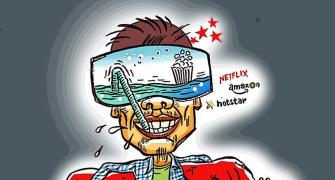 After a breather, private sector banks are again catching up with their public sector counterparts in auto finance as car sales zoom.
After a breather, private sector banks are again catching up with their public sector counterparts in auto finance as car sales zoom.
In the past one year, the share of state-run banks in auto finance has increased significantly, and in some cases nearly doubled, on the back of competitive rates offered by banks such as State Bank of India.
However, the trend is fast reversing as factors such as lesser processing time, more tie-ups with car dealers and competitive interest rates are making private sector banks once again attractive for car buyers.
According to data with Hyundai, in the last one year, the share of private banks in car finance has gone up from 23 per cent to 28 per cent, while that of public sector banks has grown from 29 per cent to 31 per cent. Interestingly, cash purchases have gone down from 42 per cent to 35 per cent.
"By 2010, we expect public sector and private sector banks to be at the same level of 35 per cent, with cash purchases accounting for 30 per cent of sales. This data is for Hyundai but possibly reflects the industry trend," said a spokesperson of the company.
In case of Honda Siel, the share of private banks has steadily increased from 29 per cent in January 2009 to 36 per cent in June 2009 and around 45 per cent in September 2009. On the other hand, the share of public sector banks, which was 28 per cent in January 2009, increased to 35 per cent in June 2009 but fell to 22 per cent in September 2009.
"There is a definite sign that private players are back in car financing. We expect them to bring in new customers that will result in an overall increase in the market. It helps in better availability of finance, whose positive impact is seen in rural and semi-urban sales," said Mayank Pareek, executive officer (marketing & sales), Maruti Suzuki.
The interest rate differential between private and public sector banks is also narrowing.
"Car loans significantly increased in the last few months since the festive season started. Factors like low turnaround time and dealer tie-ups are working in favour of private sector banks," said an executive of Axis Bank.
SBI had set the ball rolling for public sector banks last year by offering car loans at 8 per cent for the first year, 10 per cent for second and third years, and a floating rate for fourth and fifth years. Several other public sector banks have joined the 8 per cent interest rate bandwagon since then.
For example, UCO Bank recently slashed rates on car loans from 11.50 per cent fixed to 8 per cent (fixed) for the first year, 10 per cent for second and third years and 11.25 per cent for fourth and fifth years.
Private players such as HDFC Bank are offering car loans at a fixed rate of 9-10 per cent for five years.
"Due to the floating rate component, borrowers are often worried about a steep rise in rates in fourth and fifth years. As a result, some of them opt for fixed-rate schemes of private banks. The processing time is much less in private banks," said a car dealer.
However, non-banking finance companies are still lagging in car finance as they traditionally depend on public sector banks for credit.
"Public sector banks have been aggressive in the car finance market in the last one year. NBFCs have a disadvantage as they depend on public sector banks for borrowing. But there has been a shift as private sector banks are once again aggressive in car finance," said Ravi Todi, joint managing director, Magma Fincorp.








